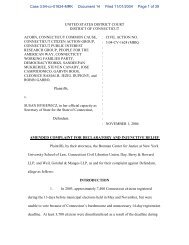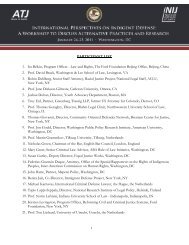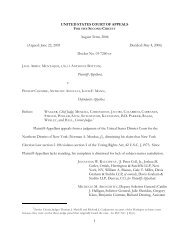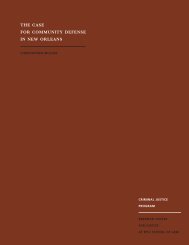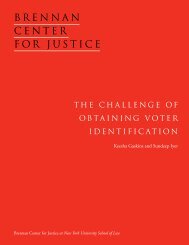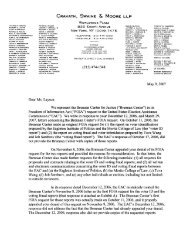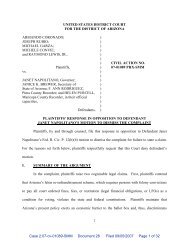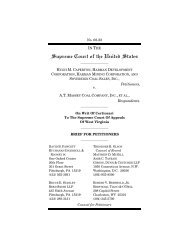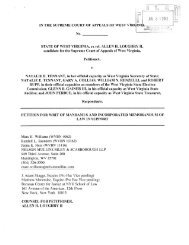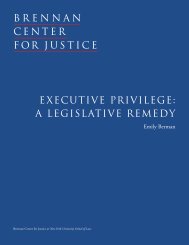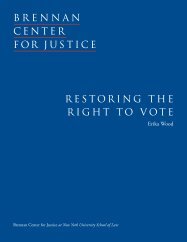MEMORANDUM OF LAW IN SUPPORT OF PLAINTIFFS' MOTION ...
MEMORANDUM OF LAW IN SUPPORT OF PLAINTIFFS' MOTION ...
MEMORANDUM OF LAW IN SUPPORT OF PLAINTIFFS' MOTION ...
You also want an ePaper? Increase the reach of your titles
YUMPU automatically turns print PDFs into web optimized ePapers that Google loves.
The classification at issue here – multi-town and single-town – creates remarkablydifferent ballot access schemes with starkly different burdens for otherwise similarlysituated candidates and voters based solely on geography. The state must provide somejustification for this disparate treatment. See Gjersten, 791 F.2d at 477 (equal protectionviolation proven in challenge to primary ballot access classifications without balancingproof of different burdens when state has presented no justification). Here, where thedifference in the burden is substantial, the state must establish that the classification is“necessary to serve a compelling state interest.” Illinois v. Socialist Workers Party, 440U.S. at 184. See also Smith v. Board of Election Comm’rs, 587 F. Supp. at 1149-50(availability of less burdensome alternatives proved that more burdensome ballot accessrequirements for some offices were not necessary to satisfy state’s interests).Connecticut’s dual system cannot withstand such scrutiny. In light of the petitionmethod of ballot access available in single-town districts, the state simply cannot justifythe severe burdens placed on candidates and voters by the byzantine ballot access rules inthose districts.C. The Petition Witness Residency Requirement Imposes an UndueBurden on Supporters’ and Candidates’ First Amendment Rights.In 1999, the Supreme Court held that a Colorado law requiring that a ballot accesspetition circulator be a registered voter was unconstitutional. Buckley v. American Const.Law Foundation, 525 U.S. 182 (1999) (striking limit on petition circulators for ballotinitiatives). One year later, the Second Circuit made plain that this rule applied torestrictions on petition circulators for candidate ballot access. See Lerman v. Board ofElections, 232 F.3d 135 (2d Cir. 2000). In Lerman, the Court struck New York’s rulelimiting candidate petition circulators to registered voters eligible to vote for the38



